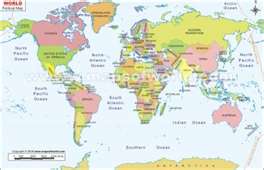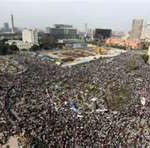Youcef Nadarkhani, a Christian pastor in Iran, has been jailed since October, 2009, for issues related to his faith. Recently a letter, reportedly from him and written in prison, was released by Present Truth Ministries. I don’t know if the pastor wrote it in English or it was translated, but I quote the entire letter as I found it. It is longer than my usual blog. I justify the length because I am touched by echos in the letter reminiscent of New Testament letters written by the apostle Paul while in prison,. The letter follows:
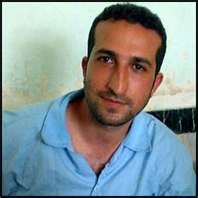 Greetings from your servant and younger brother in Christ, Youcef Nadarkhani.
Greetings from your servant and younger brother in Christ, Youcef Nadarkhani.
To: All those who are concerned and worried about my current situation.
First, I would like to inform all of my beloved brothers and sisters that I am in perfect health in the flesh and spirit. And I try to have a little different approach from others to these days, and consider it as the day of exam and trial of my faith. And during these days which are hard in order to prove your loyalty and sincerity to God, I am trying to do the best in my power to stay right with what I have learned from God’s commandments.
I need to remind my beloveds, though my trial due has been so long, and as in the flesh I wish these days to end, yet I have surrendered myself to God’s will.
I am neither a political person nor do I know about political complicity, but I know that while there are many things in common between different cultures, there are also differences between these cultures around the world which can result in criticism, which most of the times response to this criticisms will be harsh and as a result will lengthen our problems.
From time to time I am informed about the news which is spreading in the media about my current situation, for instance being supported by various churches and famous politicians who have asked for my release, or campaigns and human rights activities which are going on against the charges which are applied to me. I do believe that these kind of activities can be very helpful in order to reach freedom, and respecting human rights in a right way can bring forth positive results.
I want to appreciate all those are trying to reach this goal. But at the other hand, I’d like to announce my disagreement with the insulting activities which cause stress and trouble, which unfortunately are done with the justification (excuse) of defending human rights and freedom, for the results are so clear and obvious for me.
I try to be humble and obedient to those who are in power, obedience to those in authority which God has granted to the officials of my country, and pray for them to rule the country according to the will of God and be successful in doing this. For I know in this way I have obeyed God’s word. I try to obey along with those whom I see in a common situation with me. They never had any complaint, but just let the power of God be manifested in their lives, and though sometimes we read that they have used this right to defend themselves, for they had this right, I am not an exception as well and have used all possibilities and so forth and am waiting for the final result.
So I ask all the beloved ones to pray for me as the holy word has said. At the end I hope my freedom will be prepared as soon as possible, as the authorities of my country will do with free will according to their law and commandments which are answerable to.
May God’s Grace and Mercy be upon you now and forever. Amen.
Youcef Nadarkhani
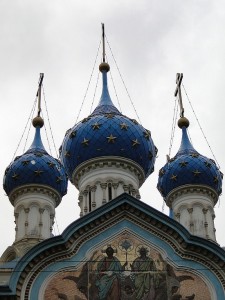 The religious leaders of the Russian Orthodox church appeared outraged at the women’s actions and called their performance in the church part of an assault “by enemy forces.” Finally, after accusing the young women and their supporters of sacrilegious acts, they called on the court to show mercy.
The religious leaders of the Russian Orthodox church appeared outraged at the women’s actions and called their performance in the church part of an assault “by enemy forces.” Finally, after accusing the young women and their supporters of sacrilegious acts, they called on the court to show mercy.

 I can see my friend’s point, though. We no longer have a citizen army, with most young men bearing equal burdens to fight, if necessary, in the country’s conflicts. New recruits are not as likely to come from the class of richer young people, those with privilege, as from those of the less advantaged. The bodies brought back from Afghanistan tend to be grieved by families of lesser education and money.
I can see my friend’s point, though. We no longer have a citizen army, with most young men bearing equal burdens to fight, if necessary, in the country’s conflicts. New recruits are not as likely to come from the class of richer young people, those with privilege, as from those of the less advantaged. The bodies brought back from Afghanistan tend to be grieved by families of lesser education and money.
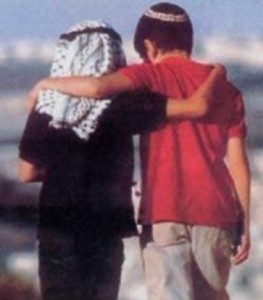 A friend of mine visited Israel and Palestine a few years ago as a Christian interested in peace between the two sides. He witnessed the coming together of Jewish and Palestinian families who had lost loved ones in the conflict.
A friend of mine visited Israel and Palestine a few years ago as a Christian interested in peace between the two sides. He witnessed the coming together of Jewish and Palestinian families who had lost loved ones in the conflict. Today’s revolutions accelerate with the instant communication of Facebook and text messages. Building a new nation requires a quieter courage: a patience to examine complex issues and an ability to find compromise between competing views of a nation’s future.
Today’s revolutions accelerate with the instant communication of Facebook and text messages. Building a new nation requires a quieter courage: a patience to examine complex issues and an ability to find compromise between competing views of a nation’s future. The revolutionists in Egypt and Tunisia vanquished corrupt dictators. Now can they survive the hard slogging? Compromise on cherished views to include the views of others? Set up impartial courts and rules of law that discourage the same corruption that bedeviled the old regimes?
The revolutionists in Egypt and Tunisia vanquished corrupt dictators. Now can they survive the hard slogging? Compromise on cherished views to include the views of others? Set up impartial courts and rules of law that discourage the same corruption that bedeviled the old regimes?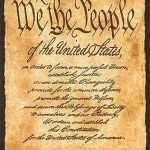 Our country formally gained independence from Great Britain in 1783. But the first structure we accepted for the new country, the Articles of Confederation, failed. After a fierce struggle between competing factions, we began again with the creation of the U.S. Constitution, ratified by Rhode Island, the final former colony to do so, in 1790. It’s an amendable document, meaning that the founders of the nation knew it wasn’t perfect and never would be.
Our country formally gained independence from Great Britain in 1783. But the first structure we accepted for the new country, the Articles of Confederation, failed. After a fierce struggle between competing factions, we began again with the creation of the U.S. Constitution, ratified by Rhode Island, the final former colony to do so, in 1790. It’s an amendable document, meaning that the founders of the nation knew it wasn’t perfect and never would be. The situation has improved for Christians of the Orthodox persuasion. In fact, Russian President Vladimir Putin stands accused of using the Russian Orthodox church as a means of bolstering his less than democratic regime. Some Russians are concerned by the power the church appears to be gaining in Putin’s government. Reports suggest that the church’s influence may be one reason for Russia’s support of the bloody Assad regime in Syria.
The situation has improved for Christians of the Orthodox persuasion. In fact, Russian President Vladimir Putin stands accused of using the Russian Orthodox church as a means of bolstering his less than democratic regime. Some Russians are concerned by the power the church appears to be gaining in Putin’s government. Reports suggest that the church’s influence may be one reason for Russia’s support of the bloody Assad regime in Syria.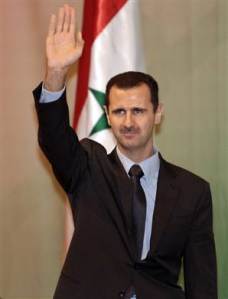 Syria is Russia’s remaining ally in the Middle East and hosts a Russian naval base. The church, rightly, is concerned about the fate of their fellow Orthodox believers in Syria should the Assad regime fall and be replaced by a possibly Islamist government. However, to suggest that Assad should be allowed to slaughter innocent civilians so that Christians might—possibly—be better protected, seems contrary to Jesus’ teachings, to say the least.
Syria is Russia’s remaining ally in the Middle East and hosts a Russian naval base. The church, rightly, is concerned about the fate of their fellow Orthodox believers in Syria should the Assad regime fall and be replaced by a possibly Islamist government. However, to suggest that Assad should be allowed to slaughter innocent civilians so that Christians might—possibly—be better protected, seems contrary to Jesus’ teachings, to say the least. In my novel Singing in Babylon, the female protagonist, Kate, moves to Saudi Arabia from her native Tennessee to teach. She travels for her first time outside the United States. On a drive with her friend, Philip, an American journalist on assignment to the Middle East, she notices a veiled and gloved woman pushing a child on a swing in a public park. The woman glances at the unveiled Kate, and Kate wonders how the woman feels about this Western female’s intrusion into her world.
In my novel Singing in Babylon, the female protagonist, Kate, moves to Saudi Arabia from her native Tennessee to teach. She travels for her first time outside the United States. On a drive with her friend, Philip, an American journalist on assignment to the Middle East, she notices a veiled and gloved woman pushing a child on a swing in a public park. The woman glances at the unveiled Kate, and Kate wonders how the woman feels about this Western female’s intrusion into her world.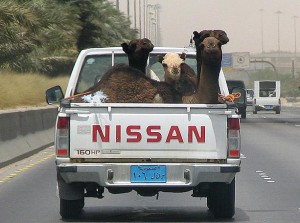 Fast food restaurants, unveiled women, and automobiles bring unprecedented freedom and rapid change to a nation in one or two generations. These changes arrived in a country accustomed to centuries-old merchant towns, Bedouins herding camels and goats, and ancient tribes familiar with the customs of generations.
Fast food restaurants, unveiled women, and automobiles bring unprecedented freedom and rapid change to a nation in one or two generations. These changes arrived in a country accustomed to centuries-old merchant towns, Bedouins herding camels and goats, and ancient tribes familiar with the customs of generations. Greetings from your servant and younger brother in Christ, Youcef Nadarkhani.
Greetings from your servant and younger brother in Christ, Youcef Nadarkhani.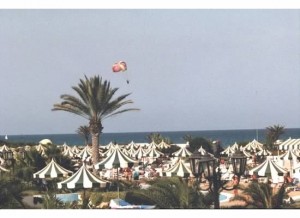 I search news reports for clues about a country’s first encounters with democracy. That country is Tunisia, where I once lived and worked. I scan the recent pictures. When I lived there, few women, and no younger ones, wore the head scarf. Most of them dressed like counterparts on the streets of Paris. Now the head scarf appears more often. Plenty of women do not wear it, but it still surprises me that some do.
I search news reports for clues about a country’s first encounters with democracy. That country is Tunisia, where I once lived and worked. I scan the recent pictures. When I lived there, few women, and no younger ones, wore the head scarf. Most of them dressed like counterparts on the streets of Paris. Now the head scarf appears more often. Plenty of women do not wear it, but it still surprises me that some do.
 President John F. Kennedy was exasperated at the Buddhist resurgence in Vietnam which undermined a Vietnamese president we supported. As Preston points out, perhaps the president should have noticed that ninety percent of the country was Buddhist.
President John F. Kennedy was exasperated at the Buddhist resurgence in Vietnam which undermined a Vietnamese president we supported. As Preston points out, perhaps the president should have noticed that ninety percent of the country was Buddhist.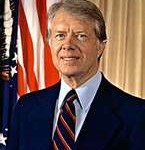 Another president, Jimmy Carter, underestimated the power of Islam in Iran, which led to the fall of the U.S. embassy there and the installation of an Islamic anti-American regime. Iran was a modernizing nation, a result of oil revenues, but religion’s hold did not vanish. In fact, modernization may have increased yearning for the certainty of religious belief in the face of rapid change.
Another president, Jimmy Carter, underestimated the power of Islam in Iran, which led to the fall of the U.S. embassy there and the installation of an Islamic anti-American regime. Iran was a modernizing nation, a result of oil revenues, but religion’s hold did not vanish. In fact, modernization may have increased yearning for the certainty of religious belief in the face of rapid change. My colleagues assigned to those countries had to deal more often with the problems caused by U.S. citizens traveling abroad solely for promiscuous purposes. Taxpayer-funded employees should understand that these activities are off-limits for them. Period.
My colleagues assigned to those countries had to deal more often with the problems caused by U.S. citizens traveling abroad solely for promiscuous purposes. Taxpayer-funded employees should understand that these activities are off-limits for them. Period. Trafficking of human beings for immoral purposes is not confined solely to foreign countries. Albert Mohler
Trafficking of human beings for immoral purposes is not confined solely to foreign countries. Albert Mohler  In this connected world, when Arab revolutions threaten, gas prices in the United States rise because of uncertainty. An actual disruption of oil shipments from the Middle East would cause an even steeper rise in prices.
In this connected world, when Arab revolutions threaten, gas prices in the United States rise because of uncertainty. An actual disruption of oil shipments from the Middle East would cause an even steeper rise in prices.